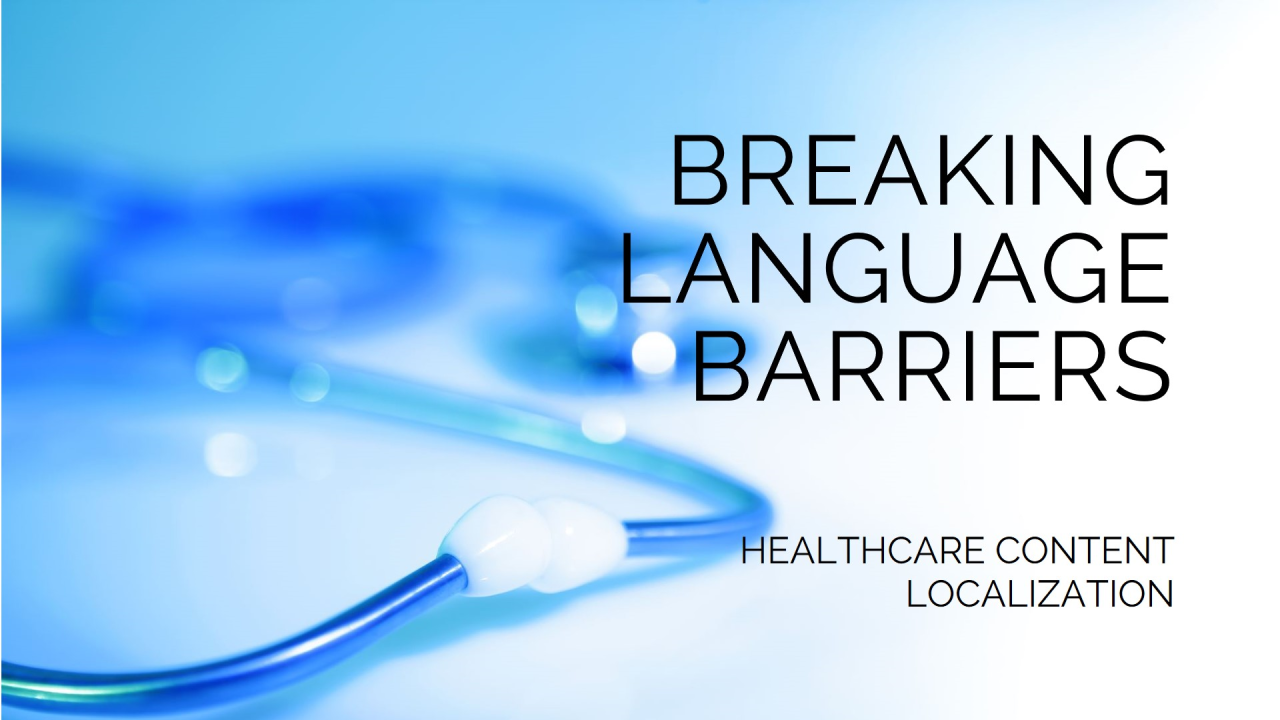
Breaking Language Barriers: Healthcare Content Localization
In healthcare, effective communication isn’t just a preference—it’s a necessity. Accurate, culturally relevant content can bridge critical gaps in understanding, ensuring patients, practitioners, and stakeholders worldwide are informed, engaged, and empowered. This is where healthcare content localization comes in.
What is Healthcare Content Localization?
Healthcare content localization involves adapting medical documents, training materials, patient education resources, and marketing content to align with the language, culture, and context of a specific audience. It’s more than simple translation—it’s about ensuring clarity, cultural sensitivity, and compliance with local regulations.
Why is Localization Vital in Healthcare?
- Improved Patient Outcomes: Patients understand their conditions, treatments, and preventive measures better when communicated in their native language.
- Global Reach for Providers: Localization enables healthcare organizations to connect with diverse populations, expanding their reach and impact.
- Regulatory Compliance: Many regions require content to meet specific language and cultural standards. Localization ensures your materials meet these requirements.
- Trust and Credibility: Well-localized content builds trust, as patients and practitioners see information that respects their cultural nuances.
The Role of AI and Human Expertise
AI-powered tools have revolutionized healthcare localization, speeding up the process by translating large volumes of content efficiently. However, healthcare content demands precision. Human linguistic experts ensure translations are accurate, culturally sensitive, and medically sound, combining the best of both worlds.
Key Areas of Healthcare Localization
- Patient Education: Leaflets, apps, and videos tailored to diverse languages and literacy levels.
- Medical Training: Courses and manuals adapted for global practitioners.
- Regulatory Documents: Ensuring compliance with local healthcare laws and guidelines.
- Marketing Materials: Campaigns that resonate with international audiences.
Conclusion
In a field where miscommunication can have life-altering consequences, healthcare content localization isn’t just important—it’s essential. By blending AI efficiency with human expertise, organizations can deliver clear, culturally relevant, and accurate healthcare information, ensuring global impact and improved outcomes for all.
Whether you’re a healthcare provider, researcher, or marketer, investing in high-quality localization is a step toward a healthier, more connected world.